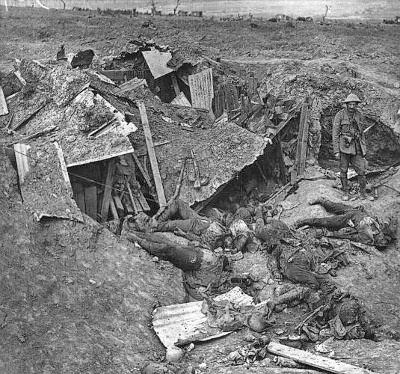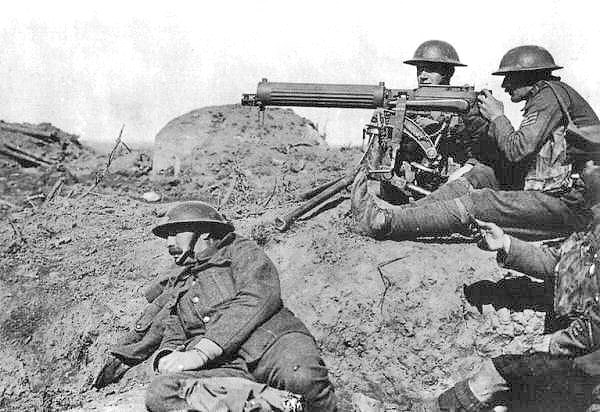Wilfred Owen, selected poems Contents
- Wilfred Owen: Social and political background
- Wilfred Owen: Religious / philosophical context
- Wilfred Owen: Literary context
- Wilfred Owen: 1914
- Wilfred Owen: Anthem for Doomed Youth
- Wilfred Owen: At a Calvary near the Ancre
- Wilfred Owen: Disabled
- Wilfred Owen : Dulce et Decorum Est
- Wilfred Owen: Exposure
- Wilfred Owen: Futility
- Wilfred Owen: Greater Love
- Wilfred Owen: Hospital Barge
- Wilfred Owen: Insensibility
- Wilfred Owen: Inspection
- Wilfred Owen: Le Christianisme
- Wilfred Owen: Mental Cases
- Wilfred Owen: Miners
- Wilfred Owen: S.I.W
- Wilfred Owen: Soldier’s Dream
- Wilfred Owen: Sonnet On Seeing a Piece of Our Heavy Artillery Brought into Action
- Wilfred Owen: Spring Offensive
- Wilfred Owen: Strange Meeting
- Wilfred Owen: The Dead-Beat
- Wilfred Owen: The Last Laugh
- Wilfred Owen: The Letter
- Wilfred Owen: The Parable of the Old Man and the Young
- Wilfred Owen: The Send-Off
- Wilfred Owen: The Sentry
- Wilfred Owen: Wild with All Regrets
War
In preparing a work for posterity, Owen wrote in his planned introduction to his war poems: ‘my subject is war and the pity of war’.
The pity of war
Owen said that the poetry in his poems lay in the pity they evoked. Many of his poems describe situations where we feel pity for the dead and dying:
- Anthem for Doomed Youth is soaked in sadness
- Disabled was originally to be the title poem for Owen’s collection
- Dulce et Decorum Est ranges from the pity for the weary soldiers, to the individual dying of gas poisoning, to the poet himself who is still haunted by the sight in his dreams
- Futility is a poem which evokes our pity for the dead boy far from home.
The horror of war
 Owen said that poets should tell the truth about the reality of the trenches and the war of attrition that produced horrendous casualties and agonising deaths. Owen‘s aim was to communicate man’s inhumanity to man to his readers:
Owen said that poets should tell the truth about the reality of the trenches and the war of attrition that produced horrendous casualties and agonising deaths. Owen‘s aim was to communicate man’s inhumanity to man to his readers:
- In Mental Cases and Disabled his theme is the gruesome aftermath of war
- Dulce et Decorum Est, Insensibility and The Sentry deal with the front line action.
Nearly every one of Owen’s poem contains some aspect of this theme.
Protest against war
Owen did not join up immediately in 1914.
- He wrote the poem 1914 in response to the German bombings of the Home front
- After he had experienced the horrors of the Somme, and in response to those at home who were urging children to die for their country, he wrote Dulce et Decorum Est with its strong anti-war message
- The Letter, Soldier’s Dream, Strange Meeting and The Parable of the Old Man and the Young (amongst others) have an anti-war theme.
Injuries in war
Owen repeatedly uses the motif of the physical and mental damage war inflicts. The following are just a few examples:
- Blindness in The Sentry
- Mental Cases and Disability speak for themselves
- Shell shock in The Dead Beat
- Suicide in S.I.W.
- Gas poisoning in Dulce et Decorum Est
- Paralysis in Wild with All Regrets
- A catalogue of pain in Greater Love.
Weapons of war
 One of the major horrors of WW1 was the introduction of heavy artillery and constant bombardment. Owen repeatedly contemplates the effect of weapons used in the war:
One of the major horrors of WW1 was the introduction of heavy artillery and constant bombardment. Owen repeatedly contemplates the effect of weapons used in the war:
- In Anthem for Doomed Youth they take centre stage
- Owen dedicates a sonnet solely to a piece of heavy artillery in On Seeing a Piece of Our Heavy Artillery Brought into Action
- Weapons are the main theme of The Last Laugh as they work their evil on individuals and appear to win
- In Soldier’s Dream weapons are the focus of the tension between a loving and a vengeful God which war brings to the fore.
Death and burial
Over and over again Owen’s poetry touches on the ravages of war which end in death:
- In Futility Owen shows us a dead boy
- In Spring Offensive he focuses on the moment of death and speculation on the hereafter
- The Dead Beat seemingly raises no one’s pity
- There is a distance in Owen’s depiction of the boy in S.I.W.
- In Exposure the soldiers turn back to their dying and await the burial parties
- The theme of death haunts the poem Wild with All Regrets
- The death and burial of the Staffordshire Miners echoes the theme of the war dead and their forgotten graves.
Survivors
That the survivors of war are unfortunates as well as the dead is a subtle theme in Owen’s poetry:
- ‘A few, a few, too few’ who creep back in The Send Off are the same ‘few who rush in’ at the end of Spring Offensive but live ‘to speak not of comrades’
- Disabled and Mental Cases ably demonstrate the psychological and physical effects of warfare.
Owen’s pity for these men is profound.
